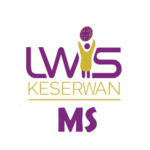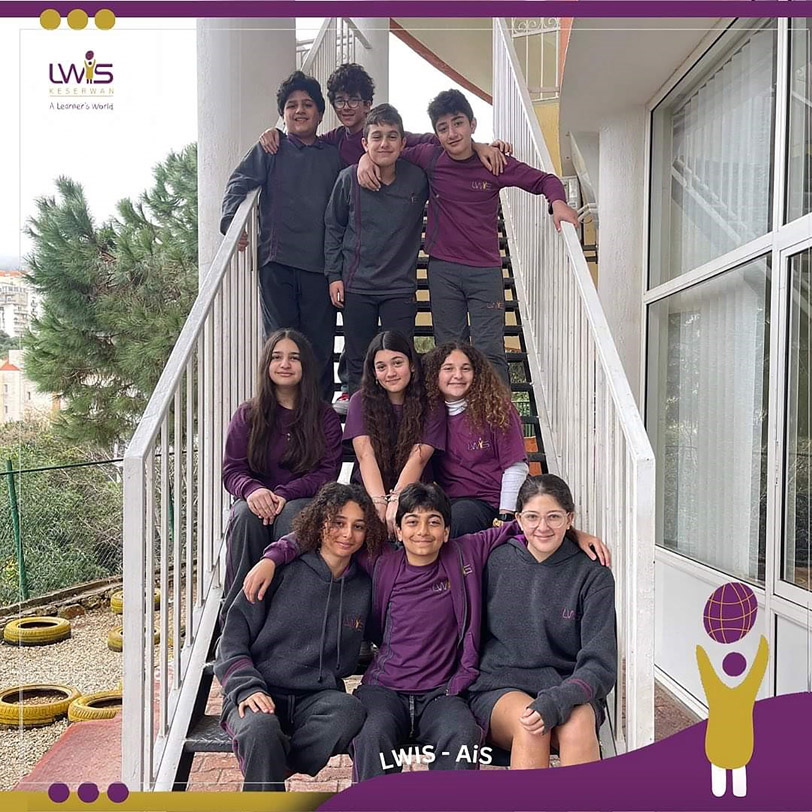
Middle School
(Grades 6 to 9)

Welcome to Middle School!

Mr. Michael
LWIS-AiS offers a challenging academic program in a safe, caring environment. We encourage students to master basic skills, sample a variety of educational, social, and cultural experiences, and begin assuming more responsibility for their learning and their citizenship. Our school system is equipped with the tools for coping with the physical, emotional, and intellectual changes that our young teens undergo which play a critical role in shaping their future.
We recognize and address the needs of individual learners, and provide integrated, active, innovative, and exciting learning experiences. Staff, parents, and students work together to create an educational community whose members treat one another with concern and respect. Our goal is to provide LWIS-AiS students with the skills and opportunities necessary for them to make a direct contribution to their community. The LWIS-AiS Middle School Team honors educational achievement and excellence at every level.
Transition to and from Middle School
“Will I be bullied?”
“Do I look fat?”
“Did I physically develop more than my friends?”
“Am I the tallest?”
“Am I the shortest?”
“How can I prove myself?”
“What will my teacher think of me?”
“Will I be bullied?”
More and more unanswered questions and concerns causing instability in the minds of students beginning in Middle School and throughout their Middle and High School years are encouraging to be a problem. Through reassurance, support, empathy, care, a sense of security, understanding, patience, etc… students will succeed to overcome their fear and concerns. This is the main reason why LWIS-AiS adopted the Peace Education Program.
Understanding "Physical Changes & Emotional Instability"
During early adolescence (ages 11 to 16), the body experiences more physical and emotional changes than it has experienced since infancy. These changes are well noticed through behaviors that are often difficult for adults to cope with and are usually centered around:
- Hair Styles
- Height
- Weight
- Hormonal Effects on Skin
- Body Odors
- Girls’ Physical Development
- Boys’ Physical Development
- Love Issues
- Relationships
- Jealousy
- Dreams
- Deceptions
- Family
- Peer Pressure
- Bullying
Therefore, having staff members understand the changes/situations, support the students, discuss the changes, care, love, and be there for students without forgetting students’ utmost need for structure and limitations is a key point in the middle school years, and this takes place mainly through student focus groups during Personal and Social Development time, where students express themselves and are encouraged to get to know each, and introduce themselves to others.
A well-planned, complete transition involves all members in the partnership: students, academic and non-academic staff members and parents.
Parents' Role
They are encouraged to:
- attend all open houses and introductory events. When parents know the child’s teachers, they establish a relationship with the teachers and a sense of security for their children.
- attend school meetings to learn about the concerns and questions their children have and will have and those addressed by the teachers.
- talk with their children about the school, beyond academics.
- be a good listener and be there for their child.
- watch for signs of depression and be ready to address them.
- learn about young adolescents and their developmental issues and stages so that they will better understand the changes that are happening with their children.
- be able to interact with their children in positive ways that strengthen their relationships
- encourage physical activities.
- keep an eye on their child and remember that this is the time where children shift away.
- provide privacy moments but not forget their presence.
Staff's Role
The role of the academic and non-academic staff goes beyond academics. They provide:
- Guidance
- Understanding
- Support
- A Good Listening Ear
- Care
Student's Role
A student will succeed through knowing their Rights and practicing his or her Responsibilities. And those are:
- the right to learn and his/her responsibilities are to study, participate in class and school academic and non-academic activities, and follow class and school rules.
- the right to speak and his/her responsibilities are to know how to present and defend his or her opinion.
- the right to a safe and healthy environment and his/her responsibilities are to practice and promote safe and health standards.
Students are encouraged to participate in the decisions made by the school for and on behalf of their interest and may express personal opinions through evaluations and requesting meetings with the person in charge and during the class representative’s meeting.
